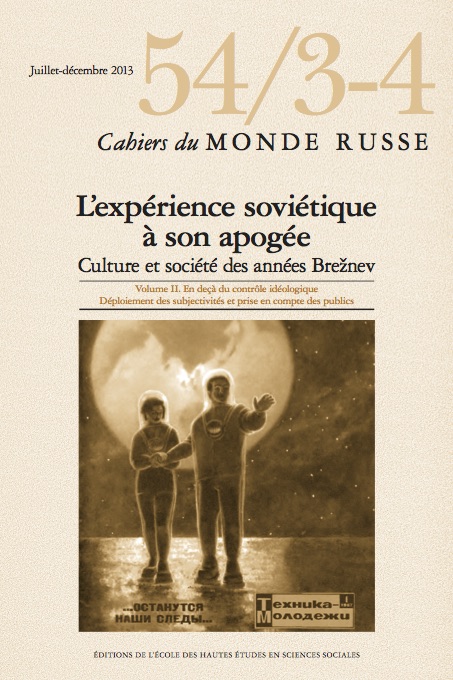
This article describes the historical context that was decisive in Saharov’s commitment to warning party leaders of the dangers of the H-bomb and calling on them to respect human rights. He also attempts to explore the different ways in which Hruščev and Brežnev approached Saharov’s criticisms. Not only does he examine the three stages of the KGB model – educate, warn and only finally arrest renegades – he also sheds light on Andropov’s repeated appeals to Brežnev to speak with Saharov. Although Saharov, too, was keen to talk to Brežnev, the meeting between the two men never took place. In the end, it was against the backdrop of the Cold War that the Politbjuro decided on the best time to get rid of Saharov, doing as little damage as possible to the prestige of the Soviet Union, and thus re-establishing the limits of the dictable.
Cahiers du monde russe Russie Empire russe Union soviétique États indépendants 54(54/3-4):441-466.